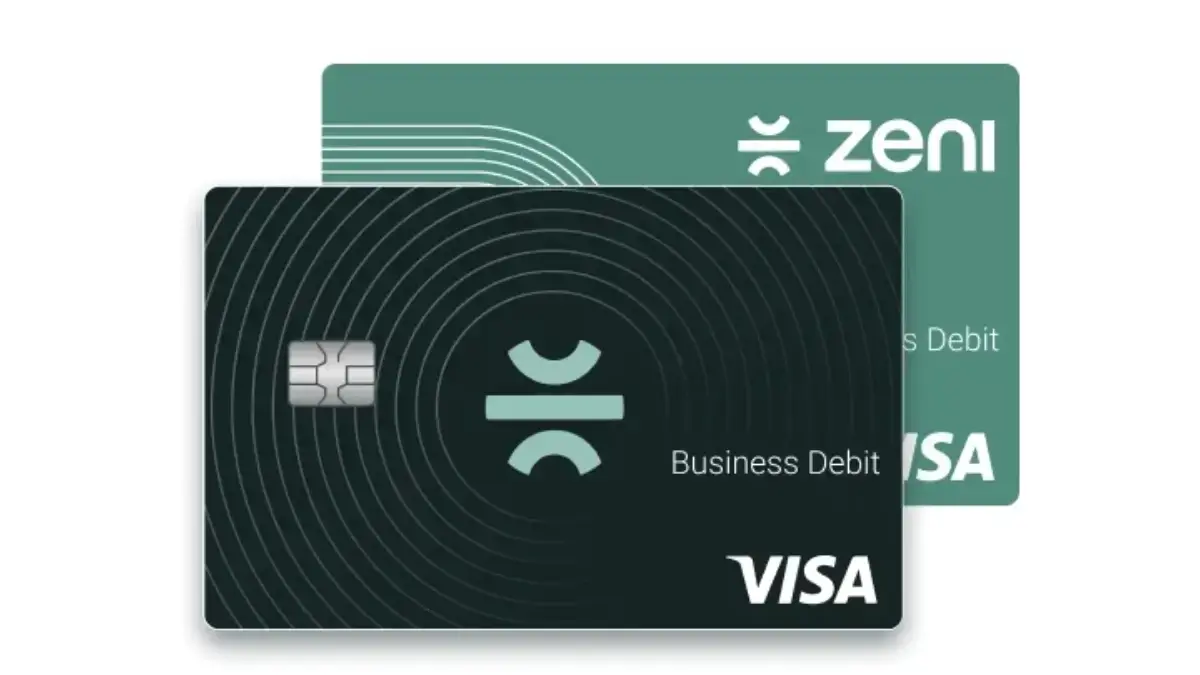
Kudos has partnered with CardRatings and Red Ventures for our coverage of credit card products. Kudos, CardRatings, and Red Ventures may receive a commission from card issuers. Kudos may receive commission from card issuers. Some of the card offers that appear on Kudos are from advertisers and may impact how and where card products appear on the site. Kudos tries to include as many card companies and offers as we are aware of, including offers from issuers that don't pay us, but we may not cover all card companies or all available card offers. You don't have to use our links, but we're grateful when you do!
Debunking Credit Score Myths: What Gen Z Needs to Know in 2025
July 1, 2025


Your credit score is like your financial GPA – and just like school, plenty of rumors swirl around about how to ace it. As Gen Z enters adulthood, misinformation about credit scores abounds on social media and beyond. Let’s set the record straight. Here are some of the biggest credit score myths that young Americans should unlearn, especially in 2025’s financial landscape. No cap – by the end of this, you’ll know what really matters for your score.

Myth 1: “You Only Have One Credit Score”
The myth: “I checked my credit score – it’s 710. That’s the number that defines my credit, period.” Many assume there’s a single, universal credit score for an individual.
Reality: Surprise! You have multiple credit scores. In fact, you have dozens of scores. Here’s why:
- There are three major credit bureaus (Experian, Equifax, TransUnion), each with its own data on you.
- There are different scoring models: FICO and VantageScore are the two big ones, and each has various versions. Lenders might use FICO 8, FICO 9, VantageScore 4.0, etc.
- Scores can be tailored to the type of lending – for example, an “auto score” for car loans, a different scorecard for credit cards, etc.
This means when you see a score on Credit Karma or your bank’s app, it might not be the exact same number a mortgage lender sees. And that’s normal. Generally, your scores will be in the same ballpark (a 710 here, a 725 there – both indicating good credit). But don’t panic if you pull your credit in two places and see slightly different numbers.
Key takeaway: Focus less on the precise number and more on the range (excellent, good, fair, etc.) and the underlying factors (payment history, utilization, etc.) that all scores use. If you’re doing the right things, all your scores will reflect it, even if the numbers vary.
Myth 2: “Checking Your Credit Report or Score Will Lower It”
The myth: “I don’t want to check my credit report or score because it could hurt my rating.” Even in 2025, this myth persists among young consumers who are understandably cautious.
Reality: Checking your own credit does not affect your score. The confusion here comes from mixing up “soft inquiries” and “hard inquiries.”
- Soft inquiry: This is when you check your credit, or perhaps when a company pre-approves you for an offer. Soft pulls do not impact your score at all.
- Hard inquiry: This happens when you apply for new credit (credit card, loan, etc.) and a lender pulls your report. Hard inquiries can cause a small temporary dip in your score (usually just a few points).
So, checking your own score/report is a soft inquiry. Feel free to do it regularly. In fact, you should. Federal law lets you get a free credit report from each bureau annually (right now, through 2025, you can even get them weekly for free due to special arrangements). Monitoring your credit can help you catch identity theft or errors early – with zero damage to your score.
On the other hand, be mindful of hard inquiries. A single hard inquiry typically knocks maybe 5 points off temporarily. Not a huge deal, but multiple applications in a short time can add up. If you’re shopping for a student loan or auto loan, do all rate shopping in a focused period (FICO will often count multiple inquiries of the same type within ~45 days as one inquiry). But again, this has nothing to do with you checking your own score.
In short: You can click “refresh” on your credit score every day if you want, and your score won’t budge. So don’t be afraid to keep an eye on it. Knowledge is power!
Myth 3: “Higher Income = Higher Credit Score”
The myth: “Once I start making more money at my job, my credit score will automatically improve.” It seems logical – if you have more income, you should be seen as less risky, right?
Reality: Income is not a factor in your credit score. You could be making $20,000 a year or $200,000 – your credit score only knows what’s on your credit report, and salary isn’t listed there. Credit scores consider things like your payment history, debt levels, credit age, mix of accounts, and recent inquiries. They do not consider your income, bank account balances, employment status, or education level.
This myth might stem from the fact that lenders ask for income on applications. While your income can affect whether you get approved for credit (and how much you can borrow), it doesn’t directly calculate into the score. Think of it this way: your credit score is about how you manage debt, not how much money you earn. If you handle credit responsibly – pay on time, keep balances low – you’ll have a good score regardless of income. Conversely, a high earner who misses payments and maxes out cards can still have a poor score.
Fun fact: Even billionaires need to manage their credit. If Jeff Bezos never paid his credit card bill, his score would tank, despite his riches. On the flip side, a college student with a part-time job can build an excellent credit score by using a $500 limit card wisely.
So, don’t wait for a bigger paycheck to start building credit. Start with what you have. Pay your bills on time and keep debts in check. That will lift your score, not your paycheck.
Myth 4: “Paying Rent and Utilities Gives Me Credit History”
The myth: “I’ve never had a credit card or loan, but I pay my rent and utility bills on time. That should build my credit, right?”
Reality: Unfortunately, most regular bill payments (rent, utilities, phone, etc.) do not automatically affect your credit score. Traditionally, only credit accounts (like credit cards, student loans, auto loans, etc.) get reported to credit bureaus. You could be the most timely rent payer ever, and that great habit won’t be reflected in your credit report or score.
However, this is starting to change a little. There are services and products now that can help get some of these payments reported:
- Some newer services (like Experian Boost) allow you to add utility and phone payments to your Experian credit report. This can help boost thin credit files, but note it only impacts the Experian score (and models that incorporate those boosted records).
- A number of landlords and rent payment services have begun offering to report rent payments to bureaus. If you’re a renter, you can ask if your on-time rent can be reported. There are third-party services that do this too (for a fee).
As of 2025, Buy Now, Pay Later (BNPL) plans are another popular payment method for Gen Z – and they typically do not help your credit score either. Most BNPL services (like Afterpay, Klarna) don’t report your on-time installment payments to credit bureaus. They might only report if you default (and the debt goes to collections), which hurts you. So while BNPL is a convenient way to split payments, don’t count on it to build credit history.
So what builds credit? Primarily, accounts like credit cards, auto loans, student loans, and mortgages – and paying them on time. If you have none of those yet, consider starting with a beginner credit card (or a credit-builder loan) to get your positive payment history on the record. It’s okay to have subscriptions and rent; just know that by themselves they won’t establish your credit.
Quick tip: If you’re keen on getting credit for your rent, check out if your landlord can report it or use a rent reporting service. It might give your score a minor lift, but the core of your credit profile should eventually be traditional credit accounts you manage well.
Myth 5: “Use Buy Now, Pay Later – It’s Just as Good for Your Credit as a Credit Card”
The myth: “I don’t have a credit card, but I use BNPL for big purchases. That’s like using credit, so it should build my credit score.” With Buy Now, Pay Later services being so popular among Gen Z, it’s important to clarify this one.
Reality: Buy Now, Pay Later (BNPL) services usually do nothing for your credit score. When you split a purchase into four installments via a BNPL app, those payments typically are not reported to the credit bureaus (as mentioned above). So, even though BNPL is a form of “borrowing,” it often exists in a credit-reporting void. You could pay a dozen BNPL plans flawlessly and still have a thin or no credit file.
Moreover, many people assume BNPL is a safer alternative to credit cards. It’s true that BNPL can be handy and doesn’t charge interest if payments are on time (for the short-term plans). However, be cautious:
- If you miss BNPL payments, you can get hit with fees, and some providers might eventually send serious delinquencies to collections, which will then show up on your credit report (in a very bad way).
- BNPL can encourage overspending because it makes purchases feel smaller (e.g., “just $25 a month for 4 months” sounds easier than $100 now). This can lead to juggling multiple plans and losing track.
From a credit-building perspective, a credit card used responsibly beats BNPL. A credit card reports every month to the bureaus, helping build your score (so long as you pay at least the minimum on time). BNPL, in contrast, might as well be invisible to FICO/VantageScore unless things go wrong.
2025 insight: The industry is evolving – there’s talk of more BNPL reporting to bureaus in the future as these services become mainstream. But as of now, assume BNPL won’t help your credit profile. If your goal is to build credit, you’ll likely need to use traditional credit products.
Bonus Myth: “Marrying Someone Merges Your Credit Scores”
The myth: “If I get married, our credit histories become one.” (Okay, this one might be a bit ahead for most early 20-somethings, but it’s worth clearing up for the future.)
Reality: Everyone has their own credit report and score – marriage doesn’t merge them. You’ll each maintain separate credit files. However, any joint accounts you open (say a shared credit card or co-signed loan) will show up on both of your reports.
And if you’re an authorized user on your spouse’s card, that account will appear on yours. But you don’t inherit your partner’s past credit history or scores. Good or bad, those remain individual. So if Prince/Princess Charming has terrible credit, it won’t rub off on you… unless you jointly apply for new credit, in which case the lender will look at both of your scores.
(Now back to our regularly scheduled Gen Z programming!)
FAQs
Does my income affect my credit score?
No, income isn’t factored into credit scores. Your credit score is based on your credit behavior (payments, debts, etc.), not your salary. You can have a great score with a modest income or a poor score with a high income, depending on how you manage credit.
Do I really have more than one credit score?
Yes. You have multiple credit scores generated by different bureaus and models. For example, your Experian FICO Score may differ from your TransUnion VantageScore. They should be similar if your credit data is consistent, but don’t be alarmed by slight differences.
Will using Buy Now, Pay Later improve my credit?
Generally, no. Most Buy Now, Pay Later plans don’t report positive payment history to credit bureaus, so they won’t build your credit. They only might appear on your credit report if you default and the debt goes to collections – which would hurt your credit.
How can I start building credit if paying rent and bills doesn’t count?
Consider opening a starter credit account – for example, a student credit card or a secured credit card – and use it for small purchases, paying it off monthly. This will establish a credit history. You can also look into rent-reporting services if you want your on-time rent to count. The key is to have some account that reports to bureaus in your name, and then manage it well (pay on time, keep balances low).

Supercharge Your Credit Cards
Experience smarter spending with Kudos and unlock more from your credit cards. Earn $20.00 when you sign up for Kudos with "GET20" and make an eligible Kudos Boost purchase.
Editorial Disclosure: Opinions expressed here are those of Kudos alone, not those of any bank, credit card issuer, hotel, airline, or other entity. This content has not been reviewed, approved or otherwise endorsed by any of the entities included within the post.





























.webp)
.webp)
.webp)
%20(1).webp)
.webp)
.webp)


.webp)